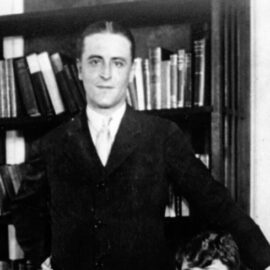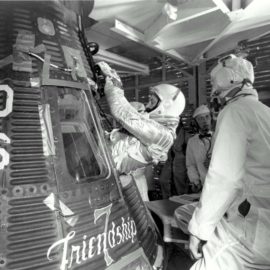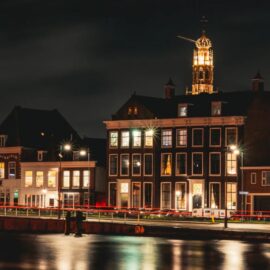
What did Henry David Thoreau believe about life and politics? How did he diverge from his fellow Transcendentalists? Why did he spend a night in jail?
Henry David Thoreau’s beliefs strongly impacted the way he lived. A key figure in the Transcendentalist movement of the 19th century, Thoreau also had distinct political beliefs that influenced later generations.
Read more to learn about Henry David Thoreau’s beliefs about life and politics.
Thoreau‘s Own Brand of Transcendentalism
Thoreau was a naturalist, essayist, philosopher, and central figure in the 19th-century movement called Transcendentalism. Henry David Thoreau’s beliefs echoed those of other Transcendentalists who trusted in the goodness of humans and nature and promoted the idea that following your intuition enables you to find meaning in your life.
At Walden Pond, Thoreau experimented with the idea that a person could find and even perfect himself by turning to nature. This idea was promoted by Emerson and by the Transcendentalists, a group of New England intellectuals (Emerson and Thoreau chief among them) who shared ideas about nature, the self, and divinity. The Transcendentalists contended that people should strive for freedom of thought, cultivate their own sense of spirituality, and develop a deep connection to nature rather than conform to the norms of a materialistic society.
Thoreau explains that the choices he made in moving to Walden were motivated by a desire to live more simply—and he doesn’t hesitate to say that he thinks his readers should simplify their lives, too. During the two years he lived in the woods, Thoreau chose a life of what he calls “voluntary poverty.” He reduced what he produced and consumed to just what was necessary for survival: food, shelter, clothing, and fuel.
A second reason that Thoreau moved to Walden Pond was to live a life attuned to the natural world, rather than set to the rhythm of life in town. He writes that modern society alienates us from the natural world. But staying in touch with the natural world—with its endless cycle of seasonal change and growth—can inspire us, awaken us, and sustain us both physically and spiritually, he contends.
Thoreau’s third motivation for living in the woods was to experience solitude, which he defined as spending time by himself without feeling alone. According to Thoreau, solitude enables us to find meaning and spiritual purpose. While Thoreau sought solitude, he also believed that he could reap the benefits of time spent alone without being a hermit.
(Shortform note: Thoreau’s decision to seek a life of solitude—as other Transcendentalists were turning to communal living—was unusual.)
Thoreau‘s Political Beliefs
At Walden, Thoreau also remained engaged with politics even though he didn’t live in town. He was unafraid to make his opinions known when he did spend time in Concord. He felt so strongly opposed to some of the national policies of his day—such as slavery and the war on Mexico—that he refused to pay the poll tax he owed to the city of Concord. About halfway through his time at Walden, Thoreau walked into town to collect a shoe he’d left for repair. He encountered a town official who put him in jail for the night for failing to pay the taxes he owed. He was released the following day.
Thoreau also understood the woods as a social, even political, space. The woods weren’t empty, either figuratively or literally: They were (at least for Thoreau) occupied by the ghosts of indigenous people and earlier settlers. When walking through the woods, he also regularly encountered living people, such as railroad workers enjoying a day off and Concord residents hunting, fishing, harvesting ice, or gathering firewood. During his time at Walden Pond, Thoreau also interacted with escaped enslaved people, whom he helped on their way north.
In addition to Walden, Thoreau is also known for his essay Civil Disobedience (1849), which proposed nonviolent resistance as a means of protest and would later influence the thinking of Martin Luther King Jr., Mahatma Gandhi, Leo Tolstoy, and many 20th-century protesters.
| What Were Thoreau’s Political Beliefs? By the time the US declared war against Mexico in 1846—a war that abolitionists viewed as a means for expanding slavery into the southwest—Thoreau had stopped paying his taxes as a protest against slavery. Local officials had ignored his tax evasion. But that changed when he publicly condemned the US invasion of Mexico. That’s when the sheriff jailed Thoreau for tax delinquency. Someone anonymously paid Thoreau’s taxes, so he was released the following day. But, Thoreau’s night in jail prompted him to write the essay “Civil Disobedience,” originally published as “Resistance to Civil Government.” In the essay, he argued that people should disobey “unjust laws” rather than participate in injustice, even if they landed in prison. The Thoreau family home was part of the Underground Railroad, and the whole family was active in the abolitionist movement. The Thoreau women had particularly strong anti-slavery views. Thoreau’s mother, sisters, and aunts all belonged to the Concord Women’s Antislavery Society, and Thoreau hosted the group (at least once) at Walden. When he lived in the woods, he continued to assist formerly enslaved people on their way north: hiding them, getting them to the train station, purchasing train tickets, and sometimes accompanying them to the next station. Critics of Thoreau’s politics say that, in keeping with the philosophy of Transcendentalism, Thoreau focused on independence and didn’t have much to say about structural change. Historian Staughton Lynd wrote in his 1968 book Intellectual Origins of American Radicalism that Thoreau’s individualism rendered him naive to how power actually works or how social change really happens. Karl Marx, who examined these dynamics, was a contemporary of Thoreau’s. But, experts say that, despite their common interests, Thoreau likely didn’t read Marx. So, it may be unsurprising that he stopped short of exploring the social and economic forces that compel people to “lead lives of quiet desperation,” as he observed that many do. |






